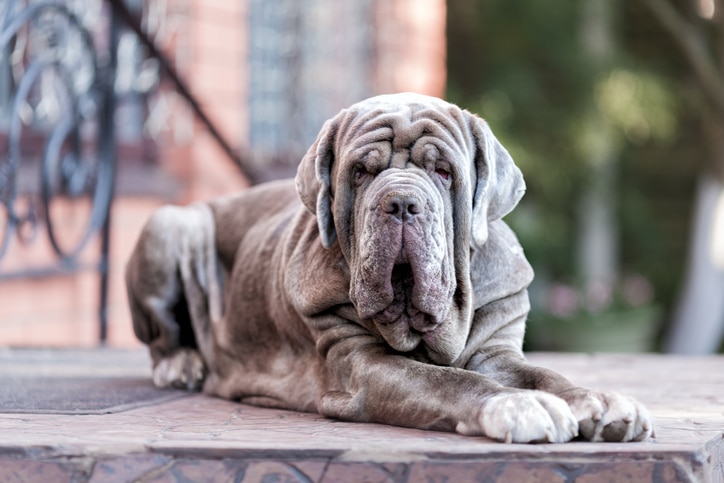Mastiff Food and Health
Generally, Mastiffs are healthy dogs; however, there is one problem that they are prone to: orthopedic issues, particularly elbow and hip dysplasia. This is due to their excessively heavy weight and large size. In order to ensure that your Mastiff lives a long and healthy life, feeding him a proper diet is essential.
Due to their exceptionally large size and muscular builds, mastiffs should be fed diets that are made up primarily of high-quality proteins, such as lamb, chicken, turkey, and beef. In fact, a pure meat diet is highly recommended for these dogs. During the puppy years, a diet that contains about 27 percent protein and 15 percent fat is ideal; however, adults require less protein and fat, with a recommended daily intake of about 25 percent protein and about 10 percent fat. Feeding older mastiffs too much protein can result in health problems.
To offset elbow and hip dysplasia, vitamin C is recommended, as is calcium. You can offer your Mastiff supplements or foods that contain these nutrients.
There are several types of commercial dog foods that will meet the dietary needs of a Mastiff; however, if you are going to feed your dog a commercial food diet, make sure that you carefully review the labels. The primary ingredient should be animal proteins. Also, you should never feed your dog foods that contain soybean meal, as this has been found to cause bloat, which can be life-threatening. Two great commercial dog foods for Mastiffs include Diamond Naturals Real Meat Recipe and Blue Buffalo Wilderness High Protein; but if you are unsure or want other options, speak to your veterinarian, who will gladly provide recommendations.
Due to the large size of the Mastiff, the type of bowl you feed him in is also important. Look for bowls that are situated on stands, such as this Wooden Double-Bowl Stand. This will prevent your dog from having to bend far down to reach his food and will make eating a lot more enjoyable and satisfying. This is particularly true for older Mastiffs who may be suffering from hip dysplasia.

